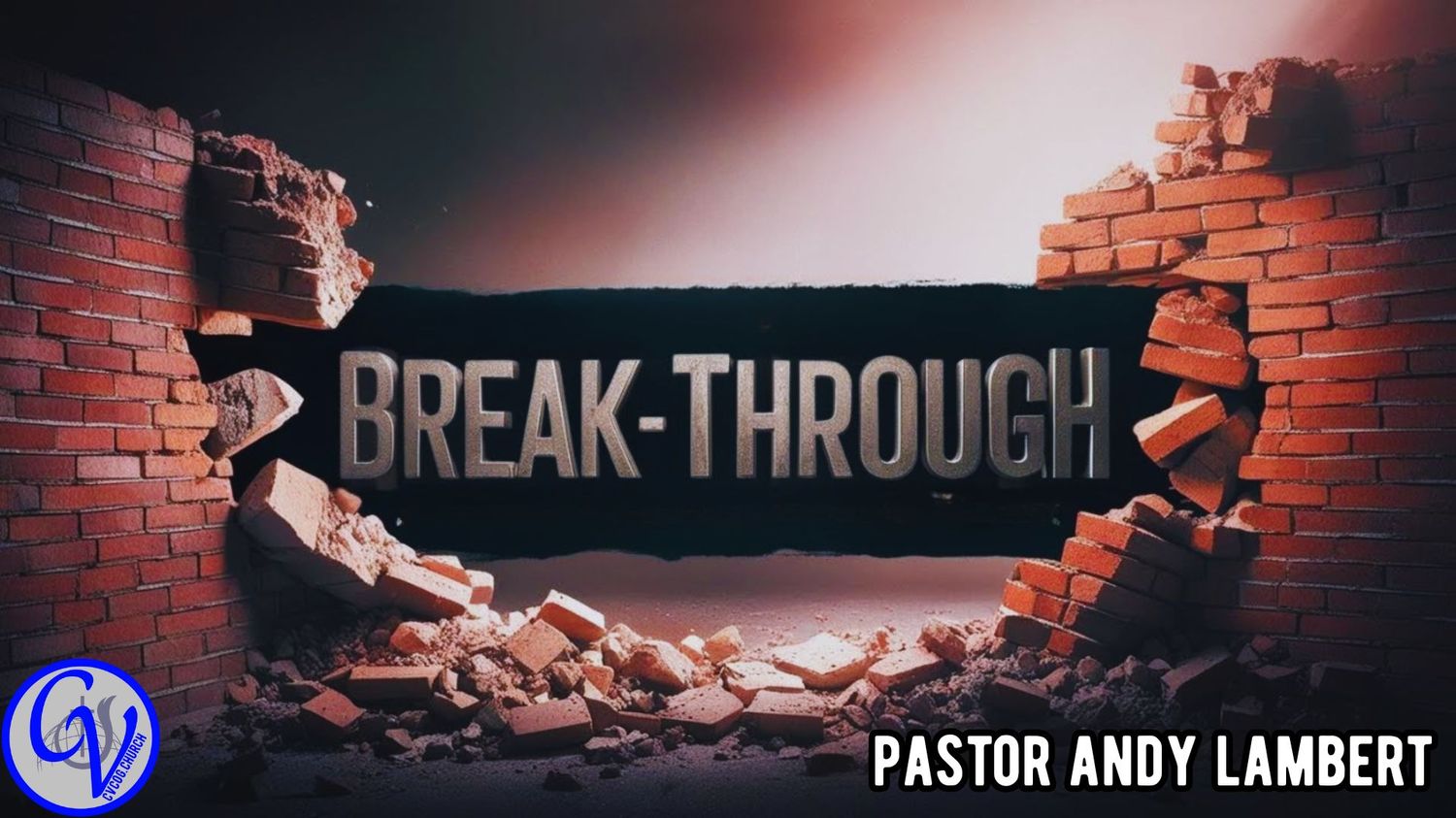Break-Through (October 19, 2025)

Sermon Outline for Sunday, October 19, 2025
PASSAGES: Isaiah 43:18-19; Philippians 3:13-14; Matthew 6:33; Matthew 21:22; James 5:16; Psalm 119:11; Jeremiah 20:8-9; Psalm 47:1; John 4:23-24; Hebrews 11:6; Mark 10:27; Hebrews 11:1; Colossians 3:1-2; Romans 8:18; 2 Timothy 1:12
A Break-Through is “an act or point of breaking through an obstruction or defensive line; an important advance in knowledge or achievement.”
Isaiah 43:18–19 ~ “18 “Remember not the former things, nor consider the things of old. 19 Behold, I am doing a new thing; now it springs forth, do you not perceive it? I will make a way in the wilderness and rivers in the desert.”
Philippians 3:13–14 ~ “13 Brothers, I do not consider that I have made it my own. But one thing I do: forgetting what lies behind and straining forward to what lies ahead, 14 I press on toward the goal for the prize of the upward call of God in Christ Jesus.”
In Isaiah 43:18-19, we are told TWO things that God will do:
- I will do a new thing.
- I will even make a way.
In Philippians 3:13-14, God tells us TWO things:
- Forget the things of the past that should be forgotten. The hurts of the past, the insults of the past, the sins of the past – all should be forgotten.
- Press toward your personal spiritual goal of the future.
SET A NEW DIRECTION IN MY PRIORITIES
Matthew 6:33 ~ “But seek first the kingdom of God and his righteousness, and all these things will be added to you.”
- In Prayer
Matthew 21:22 ~ “And whatever you ask in prayer, you will receive, if you have faith.””
James 5:16 ~ “Therefore, confess your sins to one another and pray for one another, that you may be healed. The prayer of a righteous person has great power as it is working.”
- In the Word
Psalm 119:11 ~ “I have stored up your word in my heart, that I might not sin against you.”
Jeremiah 20:8–9 ~ “8 For whenever I speak, I cry out, I shout, “Violence and destruction!” For the word of the Lord has become for me a reproach and derision all day long. 9 If I say, “I will not mention him, or speak any more in his name,” there is in my heart as it were a burning fire shut up in my bones, and I am weary with holding it in, and I cannot.”
- In personal worship
Psalm 47:1 ~ “Clap your hands, all peoples! Shout to God with loud songs of joy!”
John 4:23–24 ~ “23 But the hour is coming, and is now here, when the true worshipers will worship the Father in spirit and truth, for the Father is seeking such people to worship him. 24 God is spirit, and those who worship him must worship in spirit and truth.””
DISCOVER A NEW DARING IN MY FAITH
Hebrews 11:6 ~ “And without faith it is impossible to please him, for whoever would draw near to God must believe that he exists and that he rewards those who seek him.”
- A faith that risks
Mark 10:27 ~ “Jesus looked at them and said, “With man it is impossible, but not with God. For all things are possible with God.””
Hebrews 11:1 ~ “Now faith is the assurance of things hoped for, the conviction of things not seen.”
- A faith that reckons
Colossians 3:1–2 ~ “1 If then you have been raised with Christ, seek the things that are above, where Christ is, seated at the right hand of God. 2 Set your minds on things that are above, not on things that are on earth.”
Romans 8:18 ~ “For I consider that the sufferings of this present time are not worth comparing with the glory that is to be revealed to us.”
- A faith that rests
2 Timothy 1:12 ~ “which is why I suffer as I do. But I am not ashamed, for I know whom I have believed, and I am convinced that he is able to guard until that day what has been entrusted to me.”
Follow these steps and your spiritual break-through can be as dramatic as that of Elijah who prayed down fire from heaven and overcame the forces of Baal on Mount Carmel.
Pastor Andy Lambert
Call/Text: 205.642.8744 ext 101
Click HERE to download the CV Connect Mobile App TODAY!!!

